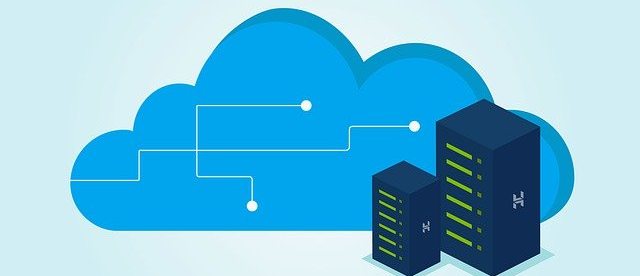Importance of Cloud Security For A Business

Cyber security issues do not disappear upon migration to the Cloud. Instead, the nature of the threats changes and requires a different management approach, an approach known as cloud security. The ease of deployment offered by many cloud service providers makes organizations sidestep important security measures with serious consequences.
While there are clear advantages to migrating to the cloud, safety must not be overlooked, there is still a need to protect your data from unauthorized access.
WHAT IS CLOUD SECURITY?
Cloud security consists of policies, controls, and technologies designed for protecting data, applications, and infrastructure in the Cloud. Various components of this type of security help protect organizations’ cloud infrastructure from external and internal security threats. Being in the cloud differs from traditional cyber security in the sense that IT admins usually have to work within a third-party cloud providers framework and tools to secure an organization’s data.
WHY IS SECURITY IN THE CLOUD IMPORTANT
The increasing adoption of cloud technologies by businesses creates new avenues for cybercriminals to compromise systems. The rapid transition to the cloud by many organizations is usually about maintaining business functions while paying minimal attention to the security of cloud data.
Focusing mainly on deployment while migrating to the cloud can make it difficult for businesses to access and manage cloud safety moving forward. Without adequate security planning, security vulnerabilities may be introduced in the process of moving the data to a new space.
Cloud service providers offer standard cyber security tools which may be insufficient to cover specific business security risks.The consequences of a cloud compromise can be severe for any business including the loss of sensitive user data and business information.
Preventing data leaks and loss is necessary for retaining customers’ trust and protecting intellectual property that gives your organization a competitive advantage.
Business content such as customer orders and design documents can fall into the wrong hands without adequate security protections in place.
Your business also runs the risk of violating regulatory compliance if the proper security requirement is not implemented.
Hence, security is needed to protect your business from disruption, compromise, and data exposure.
KEY COMPONENTS
Securing data in the cloud requires a different approach than on-premise servers and data centers. Some of the multilayer features include:
Preventive Controls
These are designed to block unauthorized users from accessing sensitive systems and data. They are the outer layer of control that ensures that cyber attackers cannot access private data.
Detective Controls
Sometimes, cyber-criminals evade defensive structures and gain access to cloud resources in an attempt to steal users and business data. In this case, detective controls kick in to identify and reveal unauthorized access or suspicious changes to that particular system. This is achieved through the process of auditing, monitoring, and reporting suspicious activities.
Automated Controls
This defensive approach helps to prevent, detect and respond to security updates and breaches.
Administrative Controls
Administrative control ensures that users with access to cloud resources are limited to their assigned roles.
CLOUD SECURITY MODELS
Policies and procedures to create a safe environment for business data and operations can be clarified by defining the responsibilities of both customers and cloud service providers(CSPs). This is known as the shared responsibility model.
Cloud security responsibilities depend on the service provider and cloud model. For Software as a service(SaaS), a large part of the safety procedures for cloud infrastructure is handled by the service providers while businesses are given limited access and controls over the underlying system.
For the Infrastructure as a Service(IaaS) model, customers have advanced controls over the system. Platform as a Service(PaaS) offers a balance of responsibilities between users and platform operators.
Regardless of the model, customers are expected to handle data security and identity and access management. In addition, data encryption and regulatory compliance are within the scope of the customers.
HOW TO PROTECT YOUR DATA IN THE CLOUD
- Enforce multi-factor authentication(MFA) policy to verify users’ identity.
- Activate encryption for data storage and transfer.
- Isolate your cloud data backups to mitigate ransomware attacks.
- Adopt and deploy cloud protections including firewalls, intrusion prevention systems(IPS), and anti-malware programs.
- Monitor all forms of data changes.
- Implement data copy restrictions in and out of the cloud.
- Conduct security awareness training for employees about cloud infrastructure and security risks.
Understanding and implementing security requirements of your preferred cloud service provider will go a long way in improving your business data protection.
For some service providers, customers can find it challenging to exercise additional security controls in order to protect against cyber threats because of platform restrictions.
An experienced MSP can make your cloud migration very smooth while also ensuring that adequate security policies are put in place to prevent any type of data compromise.
Adopting a “security first” approach while striking a balance between usability and cyber security protection is the way forward in fortifying your cloud infrastructure against cyber attacks. Contact us today to discuss your security options.
The post Importance of Cloud Security For A Business appeared first on SDTEK | San Diego, CA.


